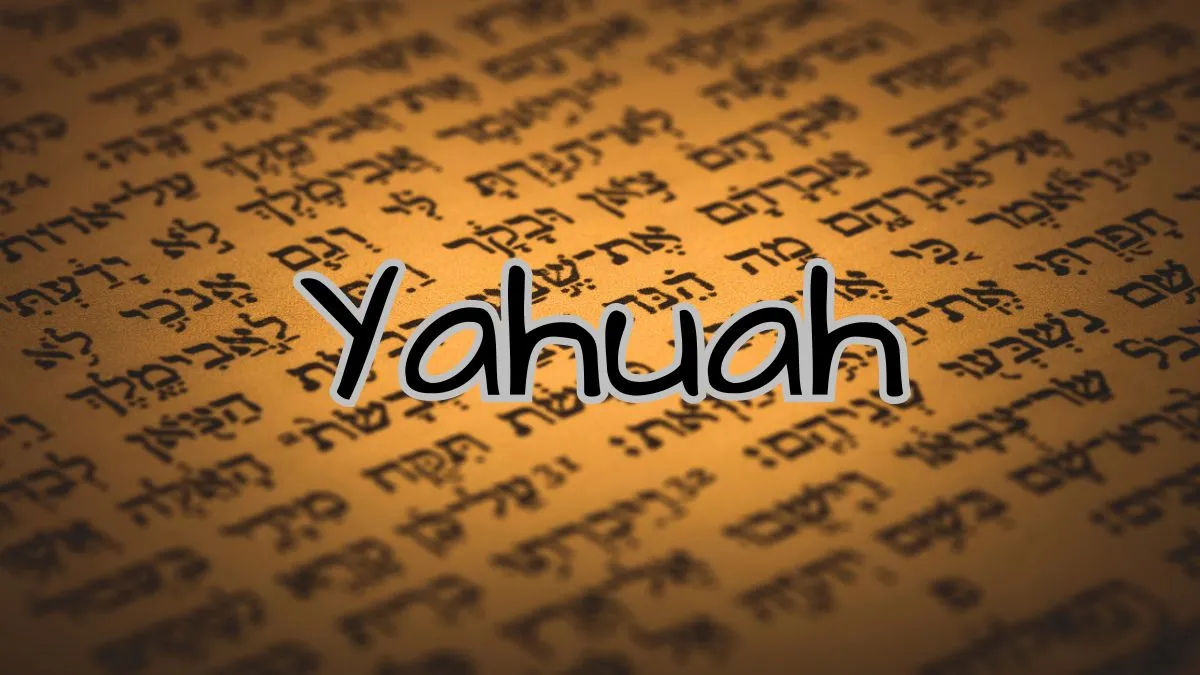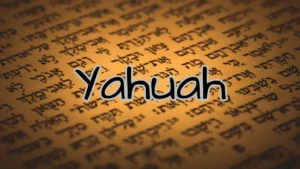Throughout the ages, humanity has searched for deeper meaning in the name of the Divine, yearning for a closer, more intimate connection with the source of all life. Among the many sacred names used to describe the Almighty, the name Yahuah holds a distinctive and powerful place, particularly among believers who seek to return to the Hebraic roots of faith. Often considered the original, untranslated name of the Creator in ancient Hebrew texts, Yahuah represents more than just a name—it signifies identity, authority, eternal existence, and a profound spiritual connection. Understanding the depth of this name requires delving into linguistic history, scriptural references, theological significance, and the revival of ancient traditions that seek to honor the true name of the Most High.
The name Yahuah is not widely used in mainstream religious institutions, primarily because of linguistic evolution, translation choices, and doctrinal developments over centuries. However, within a growing movement of Torah-observant believers, Hebrew Roots adherents, and those who study the Scriptures from a Hebraic perspective, the name Yahuah has been rediscovered and restored. This restoration is not merely about pronunciation or spelling—it is a spiritual awakening to the covenantal relationship between the Creator and His people. In this article, we will explore the origins of the name, its meaning, the reasons for its suppression, and the contemporary movement advocating for its use, all while maintaining a respectful and scholarly tone.
The Linguistic Roots of the Name Yahuah
To understand Yahuah, one must begin with the linguistic foundation upon which the name is built. The name is derived from the four Hebrew consonants Yod-Hey-Uau-Hey (יהוה), commonly referred to as the Tetragrammaton, which is traditionally transliterated into Latin characters as YHWH. This four-letter name appears nearly 7,000 times in the Hebrew Bible, underscoring its importance and centrality to the identity of the Almighty. However, due to reverence, fear of misusing the divine name, or following religious tradition, the pronunciation was eventually avoided by Jewish scribes and scholars, who replaced it in reading with Adonai (Lord) or HaShem (The Name).
The pronunciation of the Tetragrammaton has long been a subject of debate and study. While some traditional sources favor Yahweh or Jehovah, many modern researchers and Hebrew linguists suggest that Yahuah may be the most accurate vocalization based on how the root letters are used in other Hebrew words and names. For example, many biblical names contain parts of the Tetragrammaton, such as Yeshayahu (Isaiah), Yirmeyahu (Jeremiah), and Netanyahu. These names all contain the elements Yahu, which scholars suggest is a strong indicator of how the sacred name may have been pronounced in ancient times.
The suffix -ah or -uah in Yahuah is thought to complete the verbal form of the name, conveying a dynamic, ongoing action. Thus, Yahuah is often interpreted to mean “He who exists” or “He who causes to exist,” aligning with the divine self-description found in Exodus 3:14: “I AM that I AM” (Hebrew: Ehyeh Asher Ehyeh). This interpretation ties directly into the idea of the Creator as the eternal, self-sustaining force that upholds all life.
The Suppression and Substitution of the Sacred Name
The suppression of the name Yahuah is a complex historical process rooted in a combination of religious reverence, rabbinic rulings, and translation traditions. As early as the Second Temple period, the pronunciation of the Tetragrammaton began to be discouraged in public reading due to concerns over potential misuse, blasphemy, or the breaking of the third commandment: “Thou shalt not take the name of Yahuah thy Elohim in vain.” As a result, scribes began to substitute the name with Adonai or Elohim when reading aloud from the Torah.
This tradition continued into the Greek translation of the Hebrew Scriptures, known as the Septuagint, where YHWH was replaced with Kyrios, meaning “Lord.” The Latin Vulgate followed suit with Dominus, and English translations adopted LORD (in all capital letters) to denote where the Tetragrammaton appeared in the original text. Consequently, the original pronunciation became obscured, and the sacred name was essentially removed from common usage.
Despite these changes, the written form of the Tetragrammaton remained in ancient Hebrew manuscripts, preserved in the Masoretic Text and the Dead Sea Scrolls. In more recent times, scholars and faith-based communities have begun to challenge the long-standing tradition of substitution, advocating for a return to using the divine name as written and, where possible, spoken with reverence and understanding. This revival is not merely an academic exercise but a spiritual conviction rooted in the desire to worship the Creator in spirit and in truth, as instructed in Scripture.
Theological and Spiritual Significance of Calling on Yahuah
For believers who choose to use the name Yahuah, the choice is deeply theological and spiritual. They view the name not simply as a label but as a powerful representation of the Creator’s nature, character, and covenant with His people. In their view, calling upon Yahuah is an act of alignment with the original faith of the patriarchs, prophets, and disciples who lived according to the Torah and the commandments of Elohim.
The Scriptures contain many references that emphasize the importance of the divine name. For instance, in Psalm 91:14-16, it is written, “Because he has set his love upon Me, therefore I will deliver him: I will set him on high because he has known My name.” Likewise, Joel 2:32 states, “And it shall come to pass that whoever calls on the name of Yahuah shall be saved.” These verses suggest not only the sanctity of the name but also its relevance in divine protection, deliverance, and salvation.
Using the name Yahuah is also seen by many as a rejection of syncretism—the blending of true faith with pagan or man-made traditions. By returning to the original Hebrew name, adherents believe they are purifying their worship and honoring the Creator as He revealed Himself. This is particularly significant in light of biblical warnings against mixing the sacred with the profane, as seen in the instructions given to Israel throughout the Torah.
Covenant, Identity, and Restoration Through the Name Yahuah
In ancient Hebrew culture, names were not arbitrary; they carried meaning, purpose, and identity. The name Yahuah is deeply tied to the covenant relationship between the Creator and His chosen people. In Exodus 6:2-3, Elohim speaks to Moses, saying, “I am Yahuah: I appeared unto Abraham, unto Isaac, and unto Jacob, by the name of El Shaddai, but by My name Yahuah was I not known to them.” This statement underscores the special revelation of the divine name in the context of covenant and deliverance.
The use of the name Yahuah is seen by many as part of the end-time restoration prophesied in the Scriptures. This includes the restoration of the lost tribes of Israel, the reawakening of Torah observance, and the return to true worship. In Zephaniah 3:9, a prophetic promise is made: “For then will I turn to the people a pure language, that they may all call upon the name of Yahuah, to serve Him with one consent.” This verse is often cited by those who believe that the restoration of the sacred name is part of the larger redemptive plan for humanity.
Modern Movements and the Restoration of Sacred Names
Today, many believers around the world are embracing the use of Yahuah as part of a broader movement often referred to as the Sacred Name Movement, Hebrew Roots Movement, or Torah Observant Believers. These individuals and communities are passionate about restoring biblical truth, rejecting traditions that obscure original meanings, and honoring the Creator according to His instructions.
In addition to using Yahuah, many of these believers also use Yahusha or Yahushua as the true name of the Messiah, rather than the Greek-derived “Jesus.” They view this linguistic restoration as essential to understanding the Messiah’s mission, which includes bringing the lost sheep of the House of Israel back to the covenant and glorifying the name of His Father.
These movements also emphasize observing the biblical Sabbath, following dietary instructions, celebrating the appointed feasts outlined in Leviticus 23, and rejecting man-made holidays and customs that have no scriptural foundation. The return to these ancient paths is often described as a spiritual awakening, a rediscovery of identity, and a call to holiness.
Challenges and Controversies
While the use of the name Yahuah has gained popularity among certain believers, it is not without controversy. Critics argue that the exact pronunciation of the Tetragrammaton has been lost and that attempts to vocalize it are speculative or disrespectful. Others maintain that the traditional substitutions like “Adonai” or “LORD” are sufficient and that focusing on the name itself can lead to division or legalism.
Additionally, some mainstream religious leaders warn against what they see as a departure from established doctrine, while others view the Sacred Name Movement as a fringe ideology. Despite these criticisms, those who use the name Yahuah often respond by pointing to scriptural mandates to call upon the name, proclaim it to the nations, and not forget or profane it.
For many, the choice to use Yahuah is not about academic precision but about sincerity of worship, obedience, and a desire to honor the Creator as He revealed Himself. They argue that reverence must not lead to silence and that restoring the name is a fulfillment of prophecy and a testament to spiritual renewal.
ALSO READ: The Requinto Guitar: A Deep Dive into Its Origin, Structure, Sound, and Musical Significance
FAQs
1. What does the name Yahuah mean?
Yahuah is believed to be the original Hebrew name of the Creator, derived from the Tetragrammaton YHWH (יהוה), and is interpreted to mean “He who exists” or “He who causes to exist.” It reflects eternal existence, divine authority, and the self-sustaining nature of the Almighty.
2. Why is the name Yahuah not commonly used in most Bibles?
The name Yahuah was replaced over time due to religious tradition and reverence. Ancient Jewish scribes substituted it with Adonai (Lord) to avoid misusing the divine name. Later translations into Greek and Latin continued this practice, and modern Bibles often use “LORD” in all caps instead of the original name.
3. Is using the name Yahuah mandatory for worship?
While not universally required, many believers who focus on Hebrew roots and Torah observance feel that using Yahuah is a way to show reverence and alignment with Scripture. They see it as honoring the original revelation and deepening their relationship with the Creator.
4. How is Yahuah pronounced, and is it accurate?
Yahuah is pronounced as “Yah-oo-ah” by those who use it, based on linguistic patterns found in biblical Hebrew names and verbs. While there is debate over the exact pronunciation, many believe this rendering closely reflects the original vocalization of the Tetragrammaton.
5. What is the significance of restoring the name Yahuah today?
Restoring the name Yahuah is seen by many as part of a prophetic return to true worship and covenantal faith. It symbolizes a rejection of man-made traditions and a revival of the ancient, biblical way of life centered on truth, obedience, and spiritual clarity.









